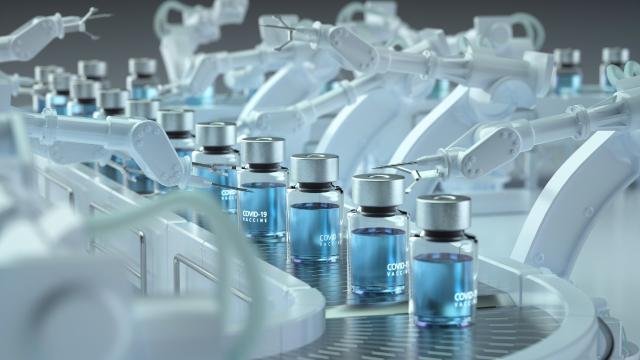It was a slow start to Australia’s vaccine rollout, but now everything is full steam ahead with plenty of states reaching their vaccination targets. One thing that hindered the rollout in Australia was the reliance on overseas manufacturers to provide us with mRNA vaccines.
To hopefully avoid this ever being a problem again, the NSW government announced it would inject $96 million into a new pilot facility to develop mRNA and RNA vaccines.
The facility will include laboratories and spaces for pre-clinical trials that will allow early-stage RNA-based vaccine development.
Premier Dominic Perrottet said NSW would be the first state in Australia to deliver this first-of-its-kind pilot vaccine facility.
“We are the first state in Australia to deliver a pilot manufacturing facility to spearhead the establishment of a local RNA industry,” Perrottet said in a statement.
“The COVID pandemic has demonstrated to the world that it is critically important that we have the capability to develop vaccines quickly and for our country to have sovereign capability.”
“The advent of mRNA vaccines and the crucial role they’ve played in getting NSW back on the road to a pandemic recovery is just the beginning of what this incredible emerging medical technology can do.”
Stuart Ayres, Minister for Jobs, Investment, Tourism and Western Sydney, said the facility holds huge potential for growth in NSW.
“There is also the potential for this facility to be scaled up to significantly increase our sovereign capacity in vaccine production, strengthening the state’s resilience against future pandemics.”
“Our world-leading research talent and expertise in RNA R&D will also attract international investment in NSW R&D, bringing companies from all over the world to use our pilot facility.”
The NSW government said the pilot facility would move ahead pending the approval of a final business case.
Why are mRNA vaccines difficult to produce?
mRNA vaccines, like the Pfizer and Moderna COVID-19 jabs, are a new type of vaccine technology.
They differ from the typical vaccine by giving our cells instructions to make a protein that will trigger an immune response. This helps us develop antibodies that can fight the infection. This differs from other vaccines which may inject users with a dead piece of a virus to trigger a response.
Being new and cutting edge technology, not every country has facilities that can make mRNA vaccines, Australia included. This caused some issues during the vaccine rollout as the government scrambled to secure shipments of Moderna and Pfizer doses from overseas.
Meanwhile, the vector Vaxzevria vaccine is manufactured locally and Australia always had plentiful supply.
Assuming we will probably be getting booster doses of COVID-19 vaccines for years to come, it makes sense for the government to invest in more facilities such as this one.
The government has also spent money to secure other COVID-19 protections such as 300,000 doses of the COVID-19 antiviral pill Molnupiravir.
Queensland residents were also offered the chance to partake in a trial for a ‘next-generation’ COVID-19 vaccine which uses virus-like particles as opposed to mRNA.
Note: This article previously reported that NSW’s new pilot vaccine facility would be the first mRNA facility in Australia, however, with one previously announced by the Victorian government, the article now reflects that it’s the first in NSW.
